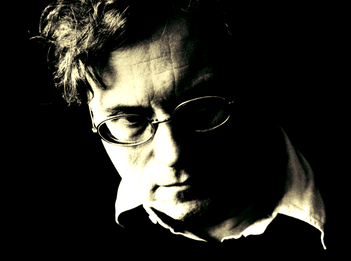|
Unlike fascism, capitalist totalitarian machines manage to divide, particularize, and molecularize the workers, meanwhile tapping their potentiality for desire. These machines infiltrate the ranks of the workers, their families, their couples, their childhood; they install themselves at the very heart of the workers' subjectivity and vision of the world. Capitalism fears large-scale movements of crowds. Its goal is to have automatic systems of regulation at its command. This regulatory role is given to the State and to the mechanisms of contractualization between the "social partners." And when a conflict breaks out of the preestablished frameworks, capitalism seeks to confine it to economic or local wars. From this standpoint, it must be acknowledged that the Western totalitarian machine has now completely surpassed its Stalinist counterpart. And yet, Stalinism had the advantage, over Fascism, of greater stability; the party was not put on the same level as the military machine, the police machine, and the economic machine. In effect, Stalinism overcoded all the machines of power, meanwhile keeping the masses under an implacable control. Furthermore, it succeeded in keeping the avant-garde of the international proletariat strung along on a tight leash. The failure of Stalinism, which is no doubt one of the most striking developments in the modern period, evidently stems from the fact that it could not adapt itself to the evolution of the productive forces and in particular to what I have called the molecularization of the work force. Inside the USSR, this failure was translated into a series of political and economic crises and into a series of successive slips which restored, to the detriment of the party, a relative autonomy to the technocratic machines of the State and of production, to the army, to the regions, etc. Outside of the USSR, this was translated into the chaotic relationships with the popular democracies-rupture with China, foundation of a de facto polycentrism within the communist parties. Everywhere, national and regional questions, particularisms once again took on decisive weight. Among other things, this allowed the capitalist countries to recuperate and partially integrate their local communist parties. From this standpoint, Stalin's legacy was completely lost. Of course, Stalinism continues to outlive itself in a certain number of parties and unions, but, in fact, it now operates on the old socialdemocratic model, and revolutionary struggles, struggles of desire, like May ' 68 or Lip, tend more and more to escape its influence. Under these conditions, the capitalist system is forced to search internally for new formulas of totalitarianism. And so long as these are not found, capitalism will have to face struggles on unforeseeable fronts (managerial strikes, struggles of immigrants and racial minorities, subversion in the schools, in the prisons, in the asylums, struggles for sexual liberty, etc.) This new situation, which involves heterogeneous social groupings whose action is not channeled into purely economic objectives, is met by proliferation and exacerbation of repressive responses. Alongside the fascism of the concentration camps, which continue to exist in numerous countries,2 new forms of molecular fascism are developing: a slow burning fascism in familialism, in school, in racism, in every kind of ghetto, which advantageously makes up for the crematory ovens. Everywhere the totalitarian machine is in search of proper structures, which is to say, structures capable of adapting desire to the profit economy. We must abandon, once and for all, the quick and easy formula: "Fascism will not make it again." Fascism has already "made it," and it continues to "make it." It passes through the tightest mesh; it is in constant evolution, to the extent that it shares in a micropolitical economy of desire itself inseparable from the evolution of the productive forces. Fascism seems to come from the outside, but it finds its energy right at the heart of everyone's desire. We must stop, once and for all, being misled by the sinister buffooneries of those socio-democrats who are so astonished that their army, allegedly the most democratic in the world, launches, without notice, the worst of fascist repressions. A military machine as such crystallizes a fascist desire, no matter what the political regime may be. Trotsky's army, Mao's army, and Castro's army have been no exceptions: which in no way detracts from their respective merits. Fascism, like desire, is scattered everywhere, in separate bits and pieces, within the whole social realm; it crystallizes in one place or another, depending on the relationships of force. It can be said of fascism that it is all-powerful and, at the same time, ridiculously weak. And whether it is the former or the latter depends on the capacity of collective arrangements, subject-groups, to connect the social libido, on every level, with the whole range of revolutionary machines of desire. Félix Guattari - Chaosophy, Everybody wants to be a fascist, p.167-169/ Published by Semiotext(e) 2007 Wilshire Blvd., Suite 427, Los Angeles, CA 90057
0 Comments
Leave a Reply. |
Steven Craig Hickman - The Intelligence of Capital: The Collapse of Politics in Contemporary Society
Steven Craig Hickman - Hyperstition: Technorevisionism – Influencing, Modifying and Updating Reality
Archives
April 2020
|

 RSS Feed
RSS Feed
